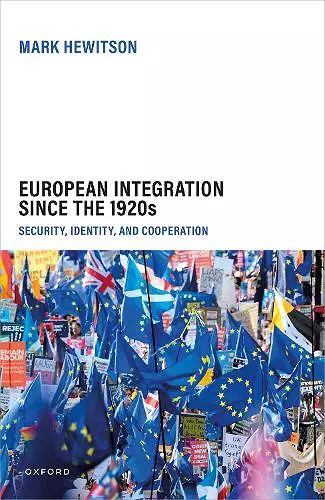European Integration Since the 1920s
Security, Identity, and Cooperation
Format:Hardback
Publisher:Oxford University Press
Published:14th Nov '24
Currently unavailable, and unfortunately no date known when it will be back

Brexit, populism, and Euroscepticism seem to have challenged old assumptions about European integration and raised the prospect of disintegration. This book re-examines why the European Union and its forerunners were created and investigates how and why they have changed. It links contemporary events to historical explanation, arguing that there were long-term sets of conditions, dating back to the 1920s, which pushed European governments to cooperate economically and to try to resolve their diplomatic differences. The failure of the French and German governments to create what Aristide Briand had called a 'European federal union' demonstrated both the precariousness of the enterprise and its connection to the domestic politics of European states. After 1945, the unexpected advent of a 'Cold War' and the military, diplomatic and economic presence of the United States in Europe facilitated the gradual development of habits of cooperation and institutional 'integration', but they also placed limits on European governments' activities, as did disagreements between political parties and the expectations of citizens. As a consequence, supranational bodies such as the European Commission have been accompanied - and often overshadowed - by intergovernmental institutions such as the European Council, with the EU as a whole functioning in important respects as a type of confederation. The volume addresses a series of large-scale historical questions which are integral to an understanding of the European Union. It asks how and why citizens of member states have identified with the EU; how matters of 'security' affected the development of the European Community during and after the Cold War; whether economic and social convergence have taken place, and with what consequences; and why European institutions have come to function as they have. The study is thematic, focusing on the most important aspects of European integration and explaining why member states have decided to carry out - or have consented to - the unique experiment of the European Union.
ISBN: 9780198915942
Dimensions: 240mm x 165mm x 34mm
Weight: 1020g
544 pages